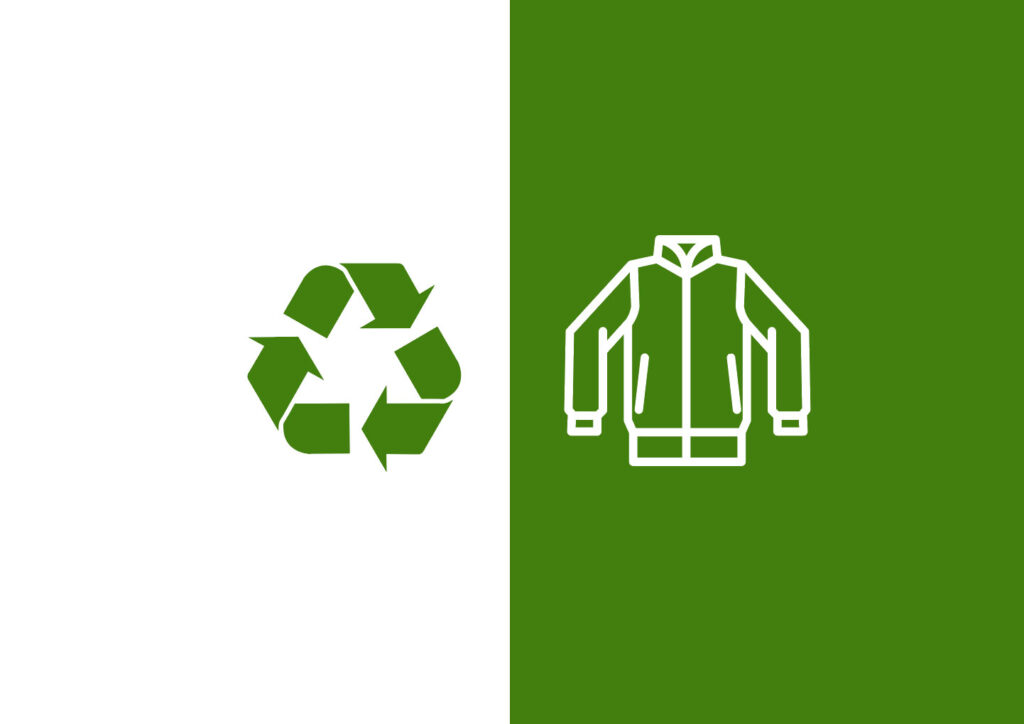Introduction

In today’s world, fashion brands have a significant impact on society and the environment. As consumers become more conscious of the social and environmental consequences of their choices, the concept of social responsibility has gained prominence in the fashion industry.
Fashion brands are increasingly expected to embrace ethical practices, promote sustainability, and make a positive impact on the communities they operate in. In this article, we delve into the importance of social responsibility for fashion brands and how they can contribute to a more sustainable and ethical future.
Ethical Supply Chains
Fashion brands have a responsibility to ensure that their supply chains adhere to ethical standards. This involves fair wages, safe working conditions, and the prohibition of child labor. By partnering with suppliers and manufacturers who share these values, fashion brands can promote social justice and protect the rights of workers throughout the supply chain. Fashion brands committed to social responsibility place a strong emphasis on ethical sourcing practices. They ensure that their suppliers adhere to fair labor standards, provide safe working conditions, and pay fair wages to workers. These brands often maintain transparency throughout their supply chains, sharing information about the origins of materials and the production processes involved. By ensuring transparency and accountability, fashion brands foster trust with their consumers and demonstrate their commitment to ethical practices.
If you need a vehicle that you can drive to a fashion store make sure to rent one from Rent a car Tuzla automatic.
Sustainable Materials and Production

One of the key aspects of social responsibility in the fashion industry is the adoption of sustainable materials and production practices. Brands can opt for organic and recycled materials, reducing the use of harmful chemicals and minimizing waste.
Embracing sustainable production methods, such as water and energy conservation, can significantly reduce the environmental impact of the fashion industry. fashion brands with a focus on social responsibility integrate sustainability into their operations. They strive to reduce their environmental footprint by using eco-friendly materials, adopting sustainable production processes, and implementing measures to conserve natural resources.
Speaking of natural resources, let’s explore how Kambo in Austin TX can contribute to sustainable practices. Kambo, a traditional Amazonian medicine derived from the secretion of a frog, has gained popularity in Austin, TX, as a natural healing practice. By incorporating Kambo ceremonies into their wellness routines, individuals can tap into the power of nature and enhance their well-being.
These brands prioritize practices such as using organic or recycled materials, minimizing waste through recycling and upcycling, and reducing energy and water consumption. By incorporating sustainability into their business models, fashion brands contribute to the preservation of the environment and promote a more sustainable future.
Transparency and Traceability
Transparency is a crucial element of social responsibility for fashion brands. Consumers are increasingly interested in knowing the origins of their garments and the processes involved in their production. By providing transparency and traceability, brands can build trust with consumers and ensure accountability throughout their supply chains.
Empowering Communities
Fashion brands have the power to make a positive impact on local communities. By engaging in fair trade practices and supporting local artisans and craftsmen, brands can create economic opportunities and empower marginalized communities. Collaborations with local producers can preserve traditional craftsmanship and cultural heritage while providing a sustainable livelihood for artisans. Socially responsible fashion brands prioritize empowering individuals and communities throughout their supply chains. They engage in fair trade practices, which ensure that artisans and workers receive fair compensation for their craftsmanship and labor. By partnering with local communities and supporting fair trade initiatives, these brands create economic opportunities and contribute to the socio-economic development of marginalized communities. This approach fosters sustainable livelihoods, preserves traditional craftsmanship, and supports the overall well-being of individuals involved in the production process. Collaborating with like-minded influencers, sustainability advocates, and organizations can amplify the message of social responsibility. Fashion brands can partner with influential individuals who are passionate about sustainability and engage in advocacy work. Beside that, they may also explore initiatives related to environmental conservation, such as supporting projects that promote sustainable fishing practices and provide fishing forecast information.
Philanthropy and Social Initiatives
Many fashion brands are taking on philanthropic endeavors and social initiatives to address social and environmental challenges. This can involve supporting charitable organizations, funding education programs, or contributing to environmental conservation efforts. By using their resources and influence, fashion brands can make a tangible difference in the communities they operate in and create a positive social legacy. Many fashion brands recognize the importance of giving back to society and actively engage in philanthropic endeavors. They support charitable organizations, donate a portion of their profits to social causes, and participate in community development initiatives. Some brands establish their foundations or initiatives to address specific social issues such as education, healthcare, or environmental conservation. By leveraging their resources and influence, these brands make a tangible and positive social impact, contributing to the betterment of society as a whole.
Influencing Consumer Behavior

Fashion brands have the unique ability to influence consumer behavior and promote conscious consumption. By raising awareness about sustainable and ethical fashion, brands can inspire consumers to make more informed choices, even when it comes to something as specific as Seattle dog boarding prices. Through marketing campaigns, collaborations with sustainability advocates, and educational initiatives, fashion brands can encourage consumers to prioritize social responsibility in their purchasing decisions. Influencing consumer behavior is a crucial aspect of the social responsibility of fashion brands.
By raising awareness, providing education, and inspiring conscious choices, brands can empower consumers to make more sustainable and socially responsible decisions. Brands can use storytelling to connect with consumers on a deeper level. By sharing the stories behind their products, and highlighting the artisans, communities, and sustainability efforts involved, they create emotional connections that resonate with consumers. Brands can emphasize their social responsibility values as part of their brand identity, fostering loyalty among consumers who appreciate their commitment to making a positive impact. Additionally, brands can enhance the shopping experience by incorporating outdoor cooling systems in their open-air shops during warmer seasons, providing a comfortable and eco-friendly environment for customers.
Diversity and Inclusivity
Socially responsible fashion brands embrace diversity and inclusivity, recognizing and celebrating the uniqueness of individuals from different backgrounds, ethnicities, and body types. They promote diversity in their marketing campaigns, showcase a range of models and brand ambassadors, and offer size-inclusive ranges. By challenging traditional beauty standards and fostering inclusivity, these brands encourage positive body image and help create a more inclusive and accepting society. Furthermore, they may support initiatives and organizations that promote inclusivity and wellness, such as partnering with or contributing to a hospital in Mexicali that provides healthcare services to underserved communities, aligning their values with actions that benefit society as a whole.
Collaboration and Industry Leadership
Socially responsible fashion brands understand the importance of collaboration and industry leadership in driving positive change. They actively engage with stakeholders, including suppliers, industry organizations, and advocacy groups, to collectively address social and environmental challenges.
When it comes to buying a property, finding the right mortgage company is essential. There are several top mortgage companies in Raleigh NC that can help you navigate the home-buying process. These companies understand the local market and offer a range of mortgage options to suit your needs.
By sharing best practices, collaborating on sustainability initiatives, and advocating for industry-wide standards, these brands contribute to raising the bar for social responsibility across the fashion industry. Fashion brands committed to social responsibility take on the role of educators and advocates. They recognize the importance of raising consumer awareness about the social and environmental impacts of the fashion industry.
These brands actively communicate their sustainability efforts, share information about their ethical practices, and educate consumers on making conscious purchasing decisions. By providing educational resources and fostering dialogue, they empower consumers to make more informed and socially responsible choices. Furthermore, these businesses may seek advice and assistance from M&A business advisors in order to explore potential partnerships and acquisitions that line with their sustainability aims, allowing for greater development and good influence in the industry.
Longevity and Quality
In a world dominated by fast fashion, socially responsible fashion brands prioritize longevity and quality. They create timeless designs and durable garments that are meant to last. By encouraging consumers to invest in high-quality, long-lasting pieces, these brands promote a shift away from disposable fashion, reducing waste and the overall environmental footprint of the industry. Some socially responsible fashion brands go beyond sustainable products and incorporate eco-friendly practices in their business operations, such as adopting energy-efficient technologies, minimizing water usage, and exploring sustainable real estate options with the help of specialized professionals like a real estate agent in Danville.
Innovation and Technology
Fashion brands dedicated to social responsibility leverage innovation and technology to drive sustainability and social impact. They explore cutting-edge solutions such as utilizing sustainable fabrics made from innovative materials, adopting innovative manufacturing processes that reduce resource consumption, and integrating technologies like blockchain to enhance supply chain transparency. By embracing innovation, these brands set new standards for environmentally friendly and socially conscious practices in the fashion industry. Furthermore, they could collaborate with technological specialists and services, such as apple repair services in Seattle, to ensure the lifetime and repairability of their products, reducing waste and optimizing the usefulness of their clothes.
Continuous Improvement
Socially responsible fashion brands understand that social responsibility is an ongoing journey. They embrace a mindset of continuous improvement, regularly evaluating their practices, and setting goals to enhance their social and environmental performance.
These brands, with a keen focus on sustainability and social responsibility, are dedicated to continuous improvement and making a positive impact. They understand the importance of scaleup business lawyer middle east, and they actively seek ways to align their practices with legal requirements and navigate the difficulties of expanding their business in the Middle East.
Leading Fashion Brands Making a Difference Through Social Responsibility
These are just a few examples of fashion brands that prioritize social responsibility. Each brand demonstrates the positive impact that can be achieved by incorporating sustainable and ethical practices into its business models, inspiring others in the industry to follow suit. By supporting these brands, consumers can contribute to a more socially responsible and environmentally conscious fashion industry. These fashion brands prioritize doing good for society. But did you know that beginners can learn about day trading too? By following their example and taking a day trading course for beginners, you can make a positive impact on both the fashion industry and your own financial knowledge.
Patagonia:
Patagonia is renowned for its commitment to environmental and social responsibility. The brand emphasizes the use of sustainable materials, such as organic cotton and recycled polyester, and implements fair trade practices. They also donate a portion of their sales to environmental causes, and their Worn Wear program promotes garment repair and reuse to minimize waste. In their stores, they may incorporate innovative solutions like light blocking strips to conserve energy and reduce environmental impact.
Everlane:
Everlane focuses on transparency and ethical production. They provide detailed information about the factories and costs involved in producing their garments, ensuring fair wages and safe working conditions. Everlane is also committed to using environmentally friendly materials and reducing their carbon footprint. Everlane offers a great example for the fashion industry and supports employee well-being by promoting ethical methods, openness, and creative assistance for their workforce, such as establishing programs or partnerships for financial resources or access to same day loans.
TOMS:
TOMS is widely recognized for its “One for One” model. For every pair of shoes sold, TOMS donates a pair to a child in need. They have expanded their impact beyond footwear to include eyewear, providing sight-saving treatments, and coffee, supporting clean water initiatives. TOMS’ social initiatives have had a transformative effect on the lives of many underprivileged communities. In keeping with their dedication to making a difference, TOMS may also consider initiatives like giving experiences such as an Atlanta city tour, allowing impoverished people to explore and appreciate their own city.
EILEEN FISHER:
EILEEN FISHER is dedicated to sustainable and ethical practices. They prioritize organic and recycled materials and promote responsible manufacturing. The brand has established initiatives to support women’s empowerment, including partnering with non-profit organizations and providing grants to women-owned businesses. Furthermore, EILEEN FISHER ensures compliance with commercial claims in California, upholding transparency and accuracy in its product marketing.
Stella McCartney:
Stella McCartney is a trailblazer in sustainable and cruelty-free fashion. The brand does not use fur or leather, opting for alternative materials. Stella McCartney promotes circular fashion through initiatives like take-back programs and collaborations with organizations working on textile recycling. They also prioritize ethical sourcing and transparency in their supply chain. Furthermore, Stella McCartney understands the value of self-care and well-being, and they have extended their commitment to sustainability by offering spa day packages in Houston that include eco-friendly and cruelty-free items.
Reformation:
Reformation is known for its commitment to sustainable fashion. They use eco-friendly materials and focus on water conservation and energy efficiency in their production processes. Reformation also provides information on the environmental footprint of each garment, allowing consumers to make informed choices. In addition to their commitment to sustainability, Reformation might explore collaborations or programs that promote their employees’ well-being, such as providing resources or access to orthopedic treatments in Phoenix, to ensure their workforce’s health and comfort.
H&M Conscious:
H&M has launched its Conscious collection, which features garments made from sustainable materials. They have implemented recycling programs, encouraging customers to bring in old clothing for reuse or recycling. H&M also invests in fair wages and improved working conditions for garment workers. Furthermore, H&M actively maintains its brand integrity by pursuing trademark cancellation against individuals who break its intellectual property rights.
Conclusion
As the fashion industry continues to evolve, social responsibility has become an essential factor for brands to consider. By embracing ethical practices, promoting sustainability, and supporting local communities, fashion brands can shape a more sustainable and ethical future. The social responsibility of fashion brands goes beyond profitability; it involves considering the well-being of workers, the conservation of the environment, and the promotion of positive social change. By committing to social responsibility, fashion brands can contribute to a more conscious and compassionate industry that respects people and the planet. Furthermore, brands can actively participate in advocacy and legal initiatives within the fashion industry by obtaining expert witness services, sponsoring legal proceedings, or offering expert testimony.


